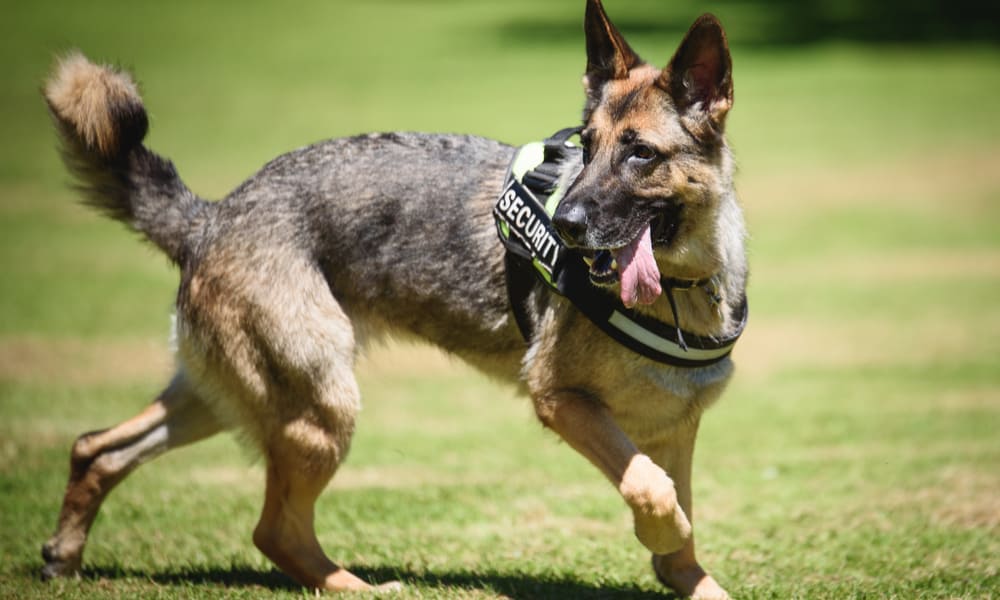
Legal cannabis in Canada may mean big changes for the country’s police canine units, according to a report from the CBC. Officer Jeff Rotinsky, a canine handler with the Winnipeg Police Service in the province of Manitoba, told local media that his police dog Mya will see less work once legalization goes into effect next week.
“What happens is, come Oct. 17, if I deploy my dog, she’s trained on the agenda of marijuana,” Rotinsky said. “It’s now a legal substance, that would now classify as an illegal search if she hit on that.”
Rotinsky said that Mya, a nine-year-old Belgian Malinois, has been trained to alert officers to many substances that are presently illegal.
“Those [substances] include methamphetamine, heroin, crack cocaine, cocaine,” Rotinsky said. “She’s marijuana trained with hash, hash oil, psilocybin—which is magic mushrooms—and she’s also trained on ecstasy as well, and imprinted on fentanyl.”
But Mya hasn’t been trained to indicate which substance she has found.
“She can’t lift one paw and say this is marijuana, lift the other paw and say this is cocaine,” Rotinsky said.
Mya isn’t being retired just yet, though. She can be used in cases when police are executing a search warrant and expect to find other substances.
“There’s a lot of questions that still need to be answered and that’s why we don’t want to stop and phase out Mya as well as our other dogs,” Rotinsky said.
Mya is the only police dog in Winnipeg that has been trained to detect fentanyl, a valuable skill for protecting her human colleagues from danger.
“So we’re going to keep her because of the imprinting on fentanyl, that’s a huge asset for us as well,” said Rotinsky.
K-9 Skills Invaluable
Rotinsky said that Mya’s work has been invaluable to police investigations.
“It’s pretty impressive to see, there’s things that she’s found that there’s no way I’d be able to find,” he said.
Mya has also helped the police find other contraband that has come in contact with illegal drugs, including cash and guns.
“She had one where she was kind of going back and forth indicating on a wall and found $150,000,” said Rotinsky.
He noted that despite Mya’s age, she is still fit for the force.
“Obviously she is aging a little bit, she still loves to work and she’s very good at it,” said Rotinsky.
When the time comes for Mya to leave to police force, Rotinsky will be able to adopt her for $1.
“She’s part of the family, my kids play with her all the time,” he said.
So when it is time for Mya to retire, Rotinsky says they will be staying together.
“These dogs mean just as much to us as anybody else, that’s our partner, this is our livelihood, I would take a bullet for my dog as I know my dog would help me out as well,” he said.
New Partner Boning Up
New police dogs for the Winnipeg Police Services are no longer being trained to alert their handlers to marijuana and other cannabis products. Besides Mya, Rotinsky has also been working with a new partner, one-and-a-half-year-old Ivy.
“She’s indicating on any controlled substance that’s not allowed in the criminal code,” he said.
Rotinsky said he believes the canine officers enjoy their work more than their handlers.
“We do it for paychecks, the [dogs] do it for that ball in her mouth,” he said.











